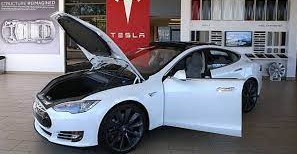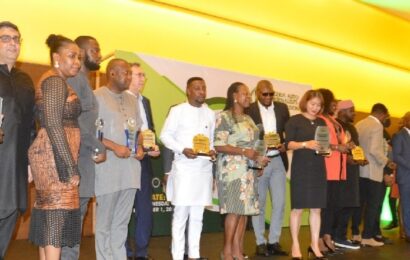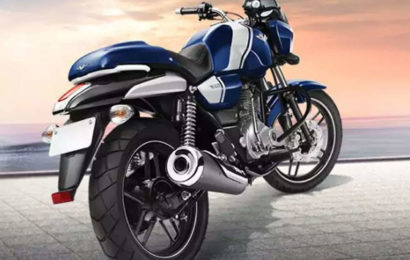
Tesla is recalling more than two million cars after the US regulator found its driver assistance system, Autopilot, was partly defective.
It follows a two-year investigation into crashes which occurred when the tech was in use.
The recall applies to almost every Tesla sold in the US since the Autopilot feature was launched in 2015.
Tesla, owned by billionaire Elon Musk, said it would send a software update “over the air” to fix the issue.
The update happens automatically and does not require a visit to a dealership or garage, but is still referred to by the US regulator as a recall.
The UK Driver and Vehicle Standards Agency said it was not aware of any safety issues involving Teslas in the UK, noting that cars sold in the UK are not equipped with all of the same features as cars in the US.
“Teslas sold in the UK market are not self-driving and are not approved to do so,” a spokesperson said, adding that the agency would continue to monitor the situation.
Autopilot is meant to help with steering, acceleration and braking – but, despite the name, the car still requires driver input.
Tesla’s software is supposed to make sure that drivers are paying attention and that the feature is only in use in appropriate conditions, such as driving on highways.
But the US National Highway Traffic Safety Administration (NHTSA) said a two-year investigation of 956 Tesla crashes found that “the prominence and scope of the feature’s controls may not be sufficient to prevent driver misuse”.
“Automated technology holds great promise for improving safety but only when it is deployed responsibly”, the NHTSA wrote, adding it would continue to monitor the software once it was updated.
Tesla did not respond to a request for comment.
According to the recall notice, the company did not concur with the agency’s analysis but agreed to add new features to resolve the concerns, including additional checks on turning on the self-driving features.
The recall comes a week after a former Tesla employee told the BBC he believed the technology was not safe.
Lukasz Krupski, speaking after winning the Blueprint Prize which recognises whistleblowers, told the BBC: “I don’t think the hardware is ready and the software is ready”.
“It affects all of us because we are essentially experiments in public roads”, he claimed.
Reacting to the news of the recall Mr Krupski told the BBC it was “a step in the right direction” but pointed out it was not just a problem in the US.
“The hardware is the same in all the Teslas in the US, China etc.”, he said
On Tuesday, Tesla defended the safety of Autopilot in a post on X (formerly Twitter) in response to a Washington Post article.
“Safety metrics are emphatically stronger when Autopilot is engaged than when not engaged” it wrote, pointing to statistics that suggested there were fewer crashes when the system was used.
Jack Stilgoe, associate professor at University College London, who researches autonomous vehicles, said Tesla should have spent more time developing the system in the first place.
“The conventional way of ensuring safety is to check that a car is safe when it leaves the factory”, he told the BBC.
But despite this being the second recall this year affecting Tesla vehicles, Susannah Streeter of investment company Hargreaves Lansdown, said her assessment was that it should not check the carmaker’s momentum too greatly:
“This recall of 2 million cars on its own is not likely to seriously quash enthusiasm. The share price has dropped back slightly, but it doesn’t look like it’ll be hit by a bad bout of skidding.
“After all, recalls in the car industry are far from unusual and the group also has the financial ability to invest in fixes”, she added.
Tesla has heavily promoted the technology in its cars and says remaining at the cutting edge of self-driving is key to its future growth.
Goldman Sachs analysts estimated this month that Tesla’s most advanced Autopilot offering, full self driving, could end up generating more than $50bn a year in revenue by 2030, up from $1bn-$3bn presently.
In the US, the full-self driving package costs $12,000, or a $199 monthly subscription fee.
“Autonomy is really where it’s at,” Mr Musk told investors this summer.
Additional alerts
Critics have said Tesla has misled customers about its software’s capabilities, contributing to risks.
The carmaker is facing other government investigations, as well as a number of lawsuits in the US in relation to crashes involving the software.
But a jury in one of the first cases to go to trial found that Tesla’s autopilot technology was not to blame.
The new controls that Tesla has agreed to do should help limit drivers from using Autopilot unsafely, said Professor Missy Cummings, director of the Autonomy and Robotics Center at George Mason University.
But she added that there was “an opportunity missed” for regulators to require Tesla to make Autopilot features unavailable in places where it is not supposed to be used.
The recall centres on a part of Autopilot called Autosteer.
Autosteer helps keep a car in the correct lane in conjunction with “traffic-aware cruise control” which matches the speed of the car to that of the surrounding traffic.
The driver is expected to have their hands on wheel and be ready to take over from the assistive system when required.
When Autosteer is on, systems in the car monitor that the driver is paying attention. If it detects the driver isn’t there are warning alerts. There are also alerts if the driver tries to use Autosteer in inappropriate circumstances.
According to the NHTSA recall report, the “over the air update” will include additional alerts and monitoring “to encourage the driver to adhere to their continuous driving responsibility whenever Autosteer is engaged.”BBC






